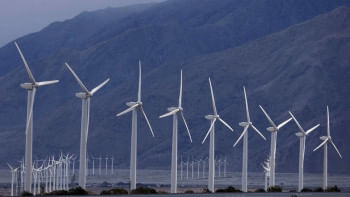Greater synergy between media and civil society a must for energy transition

The global transition to clean energy is widely recognised as an unstoppable phenomenon, with the critical question being how soon it will occur. For Bangladesh, navigating the energy transition involves more than simply overcoming technological or financial challenges. It also requires addressing social issues, such as health and economic inequalities, and pursuing justice for future generations. A sustainable energy transition demands a greater collective effort from all corners of society, and stronger collaboration between the media and civil society organisations (CSOs) is a key aspect.
In Bangladesh, civil society has demonstrated a renewed commitment to promoting clean energy since early 2020. Many local think tanks, campaigners, and academics have begun to explore the nation's journey towards clean energy, producing a remarkable amount of data and evidence that was previously unavailable, thereby increasing media discussions. Over the last three years, the number of thorough and analytical media reports on the clean energy transition has increased, according to MRDI, a leading media development organisation in the country. This increase suggests a more mature stage of reporting; however, event-driven reporting remains the most common approach. MRDI's media monitoring has identified key areas where media performance needs improvement, including the allocation of resources to data-driven investigative journalism that engages the public.
Nonetheless, both the media and civil society have played an important role in shaping the national narrative around energy security. They have challenged the previous government's misleading concept of energy security—focused narrowly on high power generation capacity—by introducing a broader perspective that emphasises affordability, reliability, and sustainability. Through extensive reporting, the media have exposed details of controversial undertakings such as capacity payments, as well as the associated financial burdens and corruption. In-depth reporting, expert analyses (often sourced from CSOs), and data-driven narratives have helped debunk myths about renewable energy, increased public awareness, influenced policy debates, and advocated for greater transparency. Local expert voices contributing to this discourse now include economists, scientists, technical specialists, financial analysts, and human rights activists—extending far beyond traditional energy-sector professionals.
Despite these contributions and collaborations, the current relationship between the media and CSOs still has some notable gaps. Engagement is primarily limited to CSOs sharing branded communication materials with the media or organising events such as press conferences. Rather than relying solely on press releases, CSOs could proactively pitch story ideas to journalists and offer support through expert analyses, data interpretation, and contextualisation. However, many CSOs struggle with slow response times and rarely produce timely, focused content beyond expert commentary. To better meet media needs, CSOs should strengthen their capacity to respond quickly to breaking news with relevant data, fact sheets, or concise analyses.
Traditional engagements, such as training sessions or roundtables, are valuable, but they may have a limited scope. Roundtables may sometimes overlook critical journalistic aspects or fail to represent diverse perspectives effectively. We don't usually see a lot of investigative reporting about the fossil fuel lobbies and major energy market players. However, investigations into serious government irregularities or collusive contracting are examples of the tremendous journalistic capacity we have. The prevalence of event-based, straightforward reporting continues across the media, often failing to explore underlying issues. The media should, therefore, strive to turn event-based reports into more critical and analytical stories, and CSOs should capitalise on such moments to provide timely and relevant materials. Both the media and CSOs need to consistently frame the energy transition as a public interest issue, focusing on its broad societal implications.
To advance beyond these limitations and effectively promote the sustainable energy transition, a deeper, more collaborative relationship is required, shifting from a transactional approach to a genuine partnership. Undertaking joint investigations and data storytelling could be potential avenues for collaboration. Combining the in-depth knowledge and connections of CSOs with journalists' investigative skills can reveal unknown information, such as potential corruption in the power and energy sector or the influence of fossil fuel lobbies. In addition, exploring the establishment of a CSO-media collaborative data repository for the energy transition could enhance data storytelling.
For CSOs, building credibility by being transparent about funding and operations, and ensuring visible accountability mechanisms, is key for their data and evidence to earn the trust of the media and the public. While challenges such as a lack of political will, bureaucratic inertia, and corporate or foreign influence persist, deeper collaboration between the media and civil society could create an enabling environment to mitigate these challenges. Moving beyond conventional interactions towards genuine partnerships in investigation, data sharing and narrative building provides a powerful pathway to create the necessary public discourse and pressure to accelerate Bangladesh's sustainable energy transition.
Kuntal Roy is a climate and energy communications specialist.
Views expressed in this article are the author's own.
Follow The Daily Star Opinion on Facebook for the latest opinions, commentaries and analyses by experts and professionals. To contribute your article or letter to The Daily Star Opinion, see our guidelines for submission.


 For all latest news, follow The Daily Star's Google News channel.
For all latest news, follow The Daily Star's Google News channel. 









Comments